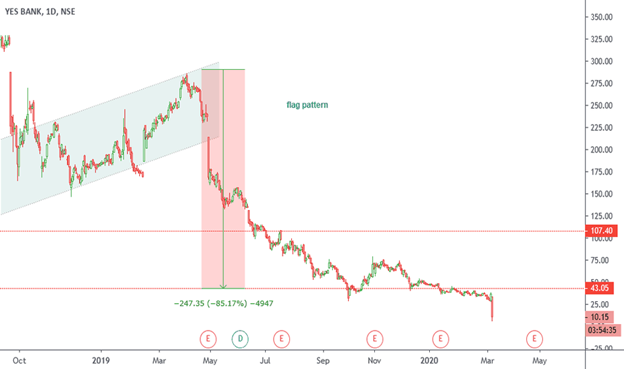In this article, Aamey MEHTA (ESSEC Business School, Master in Finance, Singapore campus, 2022-2023) explains the key financial concept of market efficiency.
What is Market Efficiency?
An informationally efficient market is a market in which the current price of a security fully, rationally, and quickly reflects all information of that security
We can measure the efficiency of a market by observing the lag between the time that information is received to the time that the security’s price reflects this information. If there is a large lag, then traders can make use of this information to generate positive returns. For efficient markets the price of a security should not be affected by information that is already expected. The changes in price should be due to new information, i.e., information that was unexpected. For example: if a company’s earning is expected to be $10M (market consensus) and their earnings are $10M, this should not cause a change in the company’s price. However, if the earnings were $20M or $5M, then the shock news will cause the stock price to move upwards or downwards.
Market efficiency and investment styles
In a perfectly efficient market investors should use a passive investment strategy. This is because in such a market it is not possible to beat the market. In efficient markets investors can expect the market value of an assets to be equal to its intrinsic value. Using an active strategy will result in underperformance compared to the market due to transaction costs. However, if the market is inefficient, then active investment strategies can result in a profit for the investor.
What factors affect market efficiency?
Generally, markets are neither perfectly efficient or inefficient. The degree of efficiency depends on the following factors: the number of market participants, the availability of Information, and impediments to trading.
Number of market participants
The higher the number of market participants the more efficient the market is. Market participants include investors, traders, analysts, and people who follow the market. The number of participants can vary over time and across countries. Some countries prevent foreigners from trading on their markets which reduces market efficiency.
Availability of Information
The more information that is available to the investors, more efficient the market is. The easier and cheaper it is to access the information the more efficient the market will be. The access to information should not favor one group over another and should be equally available to all participants. If participants have access to material nonpublic information about the firm they should not trade on this information as this would constitute insider trading which is illegal. In developed markets there is abundance of information, and the markets are efficient. Example: New York Stock Exchange. In less developed markets the availability of information is lower and hence markets are less efficient. Example: the forwards market.
Impediments to trading
Arbitrage refers to buying an asset in one market and simultaneously selling it in another market at a higher price. This buying and selling will continue till price in both the markets are the same and arbitrage is no longer possible. Impediments to trading such as high transaction costs will restrict arbitrage opportunities and allow for some mispricing of assets.
Short selling prevents assets from being overvalued and hence short selling improves market efficiency. Restrictions on short selling, such as inability to borrow stock cheaply will reduce efficiency.
Transaction and information costs
If the cost of gathering information, analysis and trading is more than the cost of trading misvalued assets markets will be inefficient. If after deducting costs, there is no risk adjusted returns to be made from trading based on publicly available information then the markets are said to be efficient.
Types of market efficiency
Weak form of market efficiency
This form of market efficiency states that current security prices fully reflect all currently available security market data. Thus, past price and volume information will have no predictive power over the future direction of security prices because price changes will be independent from one period to the next.
Semi-strong form of market efficiency
This form holds that security prices rapidly adjust without bias to the arrival of new public information. Current security prices fully reflect all publicly available information. This form says that security prices include all past security market and non-market information available to the public. Examples: Information on the financials reports published by the company, news about the company.
Strong form of market efficiency
This form states that security prices fully reflect all information from both public and private sources. The strong form includes all types of information: past security market information, public and private (insider) information. This means that no group of investors has monopolistic access to information relevant to the formation of prices and no one should be able to generate positive risk adjusted returns.
What do we know about the efficiency of the market?
Fama
Fama, in his paper Efficient Market Hypothesis defined a market to be “informationally efficient” if prices at each moment incorporate all available information about future values.
The efficient market hypothesis states:
- Current prices incorporate all available information and expectations.
- Current prices are the best approximation of intrinsic value.
- Price changes are due to unforeseen events.
- “Mispricings” do occur but not in predictable patterns that can lead to consistent outperformance.
The efficient market hypothesis does not state:
- All investors are rational.
- Prices are always right.
- Prices should be stable.
- Professional money managers can’t earn higher than market returns.
The Grossman-Stiglitz paradox
This paradox was proposed by Stanford Grossman and Joseph Stiglitz. They argue that perfectly informationally efficient markets are an impossibility since, if prices perfectly reflected available information, there is no profit to gathering information, in which case there would be little reason to trade and markets would eventually collapse.
Investors that purchase index funds or ETFs benefit at the expense of investors who pay for financial services either indirectly or directly via investing in actively managed funds.
Case study: yes bank
Yes Bank is an Indian Bank founded in 2004 by Rana Kapoor and Ashok Kapur, headquartered in Mumbai, India.
Yes bank is a private sector bank. In March 2020, Yes Bank faced a historical crisis. There are various reasons that led Yes bank to this crisis, they are, there were a large number of bad loans given by banks and depositors have withdrawn large numbers of amounts from the bank. There was no balance between the loan sheet and the depositors’ sheet. RBI put a 30 days moratorium on Yes Bank to save it.
A major effect of the yes bank crisis was that there was a big chance that other financial institutions could collapse. But the Reserve Bank of India took initiative and saved Yes Bank from major collapse.
In May 2020 shares of Yes Bank Ltd. fell as much as 84.65 percent intraday to Rs 5.65 apiece—the lowest on record—but pared some of the losses to traded 51.63 percent lower at Rs 17.80. The S&P BSE Sensex fell 1,450 points and NSE Nifty 50 slipped below 10,900. This, after the Reserve Bank of India on Thursday evening superseded the board of the lender and imposed curbs on its operations for a month.
stock chart of yes bank

Source: internet.
Useful resources
Academic resources
Fama E. (1970) Efficient Capital Markets: A Review of Theory and Empirical Work, Journal of Finance, 25,383-417.
Fama E. (1991) Efficient Capital Markets: II Journal of Finance, 46, 1575-617.
Grossman S.J. and J.E. Stiglitz (1980) On the Impossibility of Informationally Efficient Markets The American Economic Review, 70, 393-408.
Business resources
Related posts on the SimTrade blog
▶ Youssef LOURAOUI Passive Investing
▶ Youssef LOURAOUI Active Investing
▶ Akshit GUPTA Portfolio manager – Job description
About the author
The article was written in November 2022 by Aamey MEHTA (ESSEC Business School, Master in Finance, Singapore campus, 2022-2023)


9 thoughts on “Market efficiency: the case study of Yes bank in India”
Comments are closed.